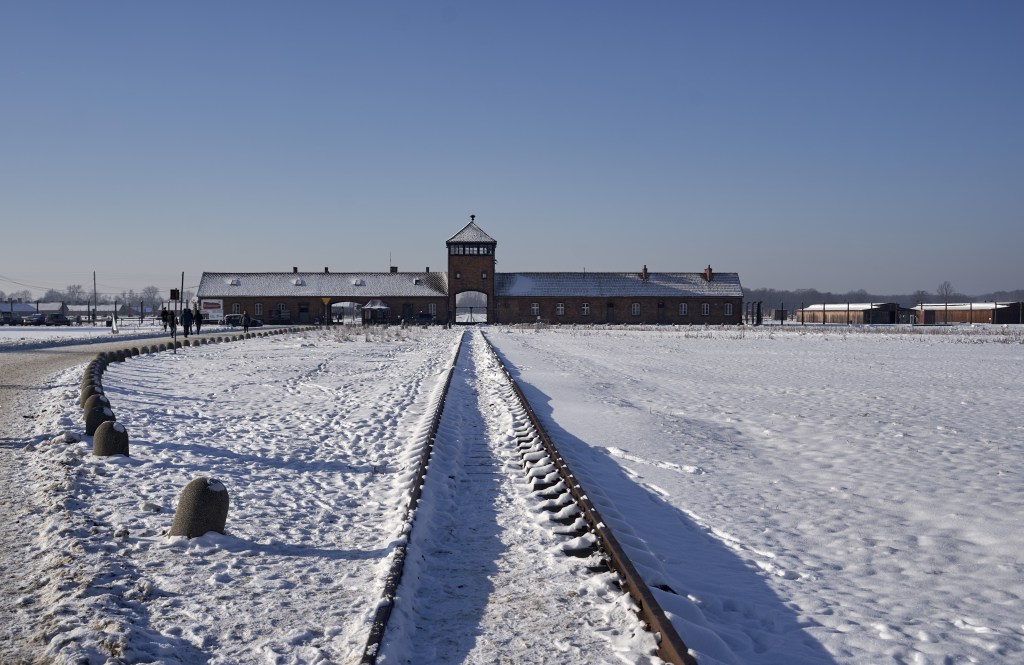This month, we took a three-week-long class at our school on Jewish culture, antisemitism, and the psychology of hate. Along with 17 other Westminster classmates, our interfaith group traveled to Warsaw and Kraków in Poland, as well as Prague, in the Czech Republic, to bear witness to the sites of one of the greatest tragedies ever faced by mankind: the Holocaust.
As we visited the Majdanek and Auschwitz-Birkenau concentration camps, the Warsaw Ghetto, and even old Jewish districts, we were haunted by the memories of a once-thriving Jewish population that perished during this incomprehensible tragedy.

One of the most important focuses of our trip was the act of bystanderism. Holocaust survivor and renowned author Elie Weisel once said that “whoever listens to a witness, becomes a witness.” Upon returning home after emotional journeys to the places where six million Jewish people perished over the span of four years, our role as witnesses became clear: to never remain indifferent to the struggles and injustices faced by anyone, anywhere, and to ensure that history does not repeat itself.
Over the course of our ten days in these two countries, we visited a variety of museums commemorating Jewish history and culture, concentration camps that showcased the utter darkness that hatred can produce, and finished our trip by experiencing the resilience that Jewish people have shown today, demonstrated by visiting the Kraków Jewish Community Center, attending a challah (traditional bread for the Sabbath) cooking class, seeing centuries-old synagogues in Prague, and attending a traditional Shabbat dinner at the Chabad House in Prague.
As we traveled through various sites in Poland, we read Art Spiegelman’s Pulitzer Prize-winning graphic novel, “Maus: A Survivor’s Tale,” a moving testimony of the Jewish experience in Poland during the Holocaust. “Maus” recounts the chilling narrative of the author’s father, Vladek Spiegelman, who miraculously survived the Sosnowiec ghetto in Poland and the Auschwitz concentration camp, and explores the lasting scars of trauma from these events. The horrors Spiegelman’s father witnessed were made tangible as we visited the same locations he describes in “Maus,” which helped shape our understanding of this unspeakable tragedy.
Prior to the trip, we attended an evening event at the Breman Museum in Midtown to hear Mr. Robert Ratonyi, a Holocaust survivor and sponsor of the trip, speak of his experience as a six-year-old boy forced to live in a Budapest ghetto at the time of the Holocaust. Upon being asked by an audience member if there was anything that kept him hopeful during his time in the ghetto, Mr. Ratonyi simply answered, “no.” Two days later, we embarked for Warsaw, and saw for ourselves this lack of hope and utter darkness that consumed the Jewish community during this time. After days of witnessing such bleakness, visiting surviving Jewish communities and centers today left us awed by the perseverance of Jewish culture in Eastern Europe. In Poland and the Czech Republic, two places where a future for Jews was once almost unimaginable, we saw before our own eyes a rebirth of Jewish life — a truly incredible sight.

On the trip, we split into small groups to create a documentary as our final project to explore a theme we had chosen relating to where we had gone on the trip. For our film, we chose to explore the theme of hope – more specifically, the hope and resilience that Jewish people have found and shown in light of all the tragedies they have experienced, dating back to as early as the 13th century. Our documentary showcases our personal journeys grappling with the realities of the Holocaust and creating a new definition of “resilience.”
In this current moment, with antisemitism on the rise worldwide and antisemitic incidents in the U.S. up almost 400% since Oct. 7, 2023, we felt the gravity of this experience and the necessity of our roles as witnesses. As Elie Wiesel said, “We are not only responsible for the memories of the dead, we are also responsible for what we do with those memories.” After confronting humanity in its most evil form, we return from this trip as not only eyewitnesses, but also activists in our school, our city, our country, and our world. We hope to act as an example and an inspiration for interfaith groups worldwide in taking this trip, encouraging education on the Holocaust globally.
A special thank you to the Chatham Valley Foundation, Jack and Lynne Halpern, Lila and Doug Hertz, Lauren and Tim Mescon, Debbie and Lon Neese, Eva and Robert Ratonyi, Joyce and Jay Schwartz, and Linda and Steve Selig for sponsoring this trip and making this incredible experience possible. Additionally, we’d like to thank our faculty leaders, Dr. Kasia Darlak, Dr. Nathan Vigil, Mr. Adam Koplan, and Mrs. Jaime Saunders for being amazing teachers and leading this trip.
This story is from Stacks, a monthly newsletter about books. Click here to subscribe.
